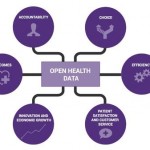 There is a growing sense that opening up patient data, both to patients themselves and to researchers is a good thing, and the web has enabled various public and private data sharing initiatives. We’ve seen the likes of PatientsLikeMe and HealthData.gov emerge to give us access to a treasure trove of health related information.
There is a growing sense that opening up patient data, both to patients themselves and to researchers is a good thing, and the web has enabled various public and private data sharing initiatives. We’ve seen the likes of PatientsLikeMe and HealthData.gov emerge to give us access to a treasure trove of health related information.
There is little doubt that the availability of this data has enormous potential to boost scientific discovery, reduce healthcare costs, enhance the development of patient support tools and many other aspects of healthcare. There are of course, an equal number of risks involved in this, whether related to privacy, discrimination and so on.
There is a risk that the legal framework that underpins this sharing can be left behind by the sheer speed with which changes emerge. A recent paper sets out to explore the legal and ethical ramifications of the changes to medical data, and sets out the risks and benefits of better sharing to all stakeholders.
The paper goes on to make a number of recommendations that it believes are essential for the appropriate use of patient data.
Privacy and data stewardship
Despite attempts to anonymize data, there remains a risk that people can be identified, with this knowledge then used in nefarious ways. The paper recommends that the HIPAA Privacy Rule should be expanded to cover and prohibit such re-identification. It also suggests that any organization releasing patient data should scrutinize any disclosed data to ensure it is suitably de-identified.
Anti-discrimination protection
An unintended side effect of the increased transparency around patient data affords some parties to engage in discrimination like never before. What’s more, this discrimination is harder to detect than more traditional forms, with greater data mining capabilities opening a Pandora’s box of possibilities. Thus changes to anti-discrimination law are almost certainly required to keep pace with this environment.
Overseeing citizen science
With the rise in open data, there has been an increase in demand amongst citizen scientists to analyze and utilize that data. The paper suggests that mechanisms are needed to assist citizen scientists in conducting, validating and publishing their research. This can be done via things such as research support and filtering tools to help prevent the spread of bad research.
This guidance could come from government agencies, academic institutions and various other research professionals. They could be required reading, alongside similar documents on privacy, before citizen scientists are allowed access to open data.
The paper also suggests that citizen scientists should be able to have their work vetted and reviewed, before then published on reputable platforms.
With more and more data being made publicly available, I think the paper does a good job of summarizing the challenges the healthcare profession faces, and some of the ways they can meet those challenges. Well worth a read.